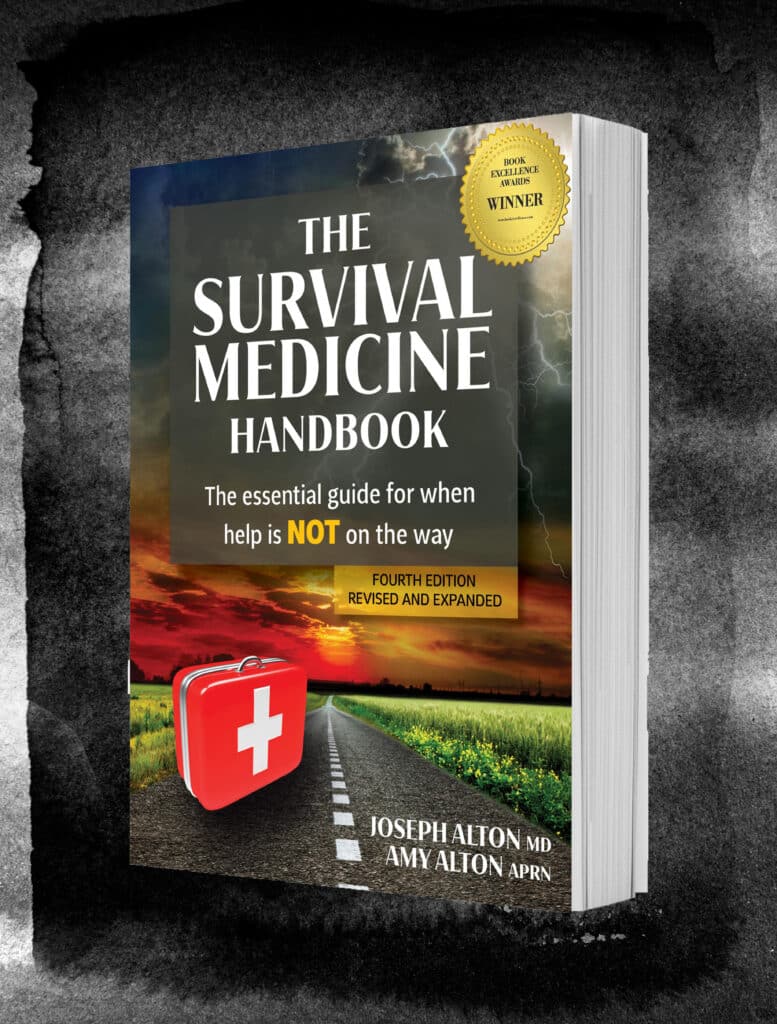RECOIL OFFGRID Preparation Book Review: “The Survival Medicine Handbook”
In This Article
In an austere setting, it may be up to you to save yourself and perhaps those around you. An often-overlooked part of our training is medical preparedness. Dr. Joseph Alton and Nurse Amy Alton have spent years educating the average person on various medical issues. The Survival Medicine Handbook serves as an extensive reference for the average person looking to improve their medical knowledge. Each section within the book is specific to a medical topic, making it easy to use as a reference. The fourth edition contains many updated revisions compared to the third edition. The authors of this book intend it to be “a plainly written guide understandable by all” (p.3). It succeeds in this task.
This comprehensive book was the first of its kind, to my knowledge. I was glad to see the fourth edition improving upon the layout of the third edition, and it makes the book much more accessible. Each of the 35 sections in the fourth edition covers a specific topic, making it easy to reference for the “family medic.” I broke these sections into groups: the basics (Sections 1 to 6), medical issues (Sections 7 to 20), first aid (Sections 21 to 28), and other issues (Sections 29 to 35).
The first group, the basics, discusses topics like becoming a medical asset and medical supplies. Included are extensive lists of supplies to consider stockpiling. The second group, medical issues, discusses different medical problems like dental, respiratory, and skin issues. These sections will give you a general overview of each condition and how to treat it. The third group, first aid, discusses major and minor trauma as well as wound care. The last group, other issues, discusses topics such as mass casualties, nursing off the grid, and medications/antibiotics. These sections cover what to expect in the aftermath of an off-grid medical emergency.
Often throughout these sections, there are numerous lists that help to emphasize a point in the body of text. There’s also an extensive glossary list at the back of the book. Dr. Alton includes over 20 references for further reading on key topics.

This is a lengthy and comprehensive book that serves as a medicine primer for the average person in an austere environment. The handbook covers some sections extensively (e.g., Section 35 Antibiotics). Very few sections (e.g., Section 13 Heart Issues) are lacking in depth. Admittedly, there may not be much to do with heart issues in an austere setting; however, I felt this section could include more content.
Additionally, at the risk of making the book longer, I would like to see more pictures to emphasize some of the points in the book (e.g., Section 18 Skin Issues). Where this book really shines is the alternative treatments using natural products. Section 4, Natural Medicine, is an excellent narrative on using herbal remedies when modern medicine is no longer available.
There are 21 essential oils and 24 different natural products mentioned in Section 4. Each of these examples covers procurement, recipes, and applications of the herbal remedy. Nearly every section throughout the book includes an example of natural treatment and a recipe for use. I found this to have added value to each topic covered.
The book is certainly worth having in your home library, but not in your bug-out bag due to its length (672 pages). I would use it as a reference for the non-medical person looking to survive a medical encounter in an austere setting. It would be difficult to cover such an expansive topic in fewer pages. The authors do an excellent job of speaking to the layman who has little to no medical knowledge. They have done a good job keeping the book as up-to-date as possible.
Don’t miss essential survival insights—sign up for Recoil Offgrid's free newsletter today!
Read articles from the next issue of Recoil Offgrid: Issue 33

Read articles from the previous issue of Recoil Offgrid: Issue 31
Check out our other publications on the web: Recoil | Gun Digest | Blade | RecoilTV | RECOILtv (YouTube)
Editor's Note: This article has been modified from its original version for the web.
 STAY SAFE: Download a Free copy of the OFFGRID Outbreak Issue
STAY SAFE: Download a Free copy of the OFFGRID Outbreak Issue
No Comments